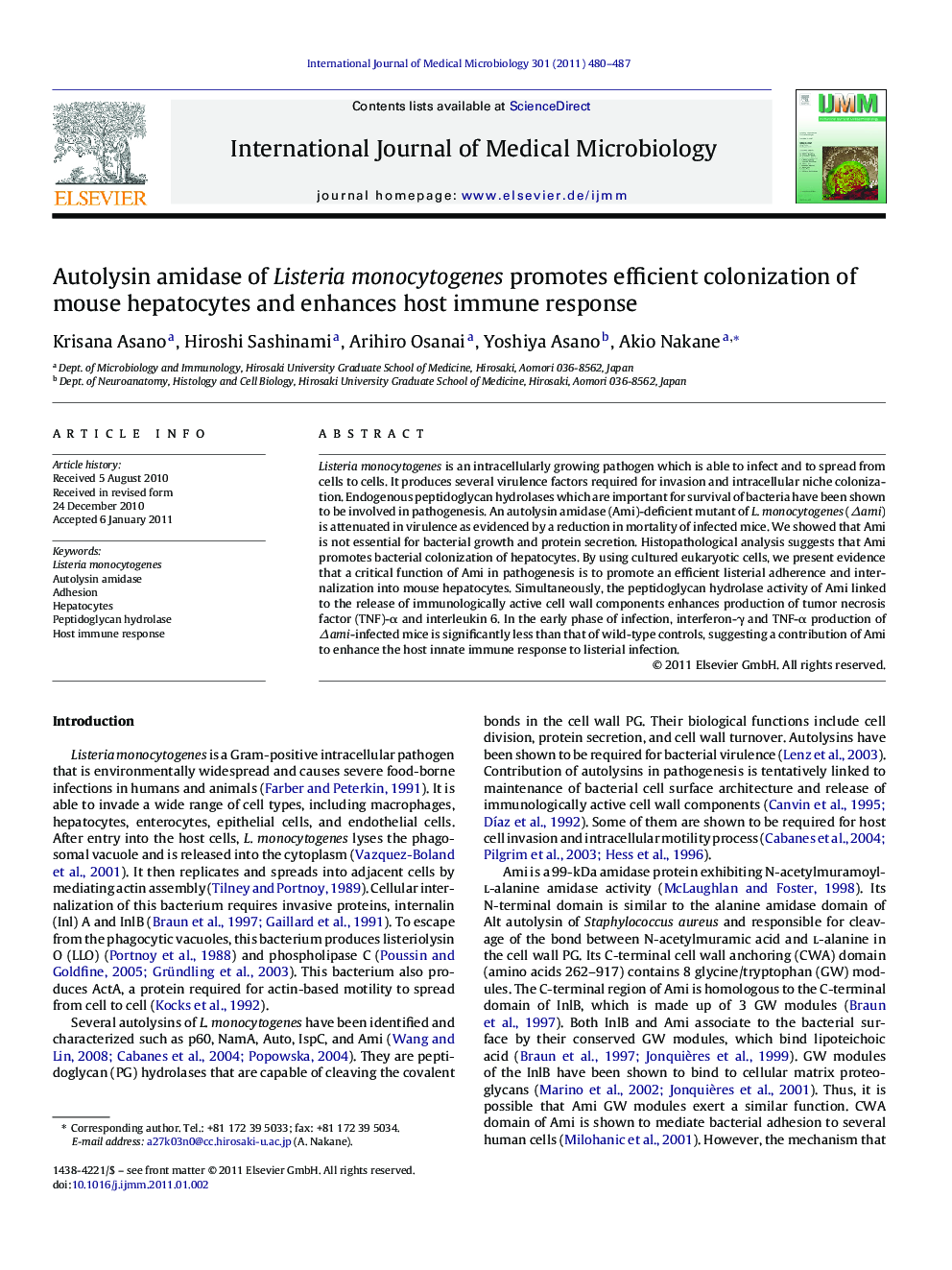| Article ID | Journal | Published Year | Pages | File Type |
|---|---|---|---|---|
| 2054292 | International Journal of Medical Microbiology | 2011 | 8 Pages |
Listeria monocytogenes is an intracellularly growing pathogen which is able to infect and to spread from cells to cells. It produces several virulence factors required for invasion and intracellular niche colonization. Endogenous peptidoglycan hydrolases which are important for survival of bacteria have been shown to be involved in pathogenesis. An autolysin amidase (Ami)-deficient mutant of L. monocytogenes (Δami) is attenuated in virulence as evidenced by a reduction in mortality of infected mice. We showed that Ami is not essential for bacterial growth and protein secretion. Histopathological analysis suggests that Ami promotes bacterial colonization of hepatocytes. By using cultured eukaryotic cells, we present evidence that a critical function of Ami in pathogenesis is to promote an efficient listerial adherence and internalization into mouse hepatocytes. Simultaneously, the peptidoglycan hydrolase activity of Ami linked to the release of immunologically active cell wall components enhances production of tumor necrosis factor (TNF)-α and interleukin 6. In the early phase of infection, interferon-γ and TNF-α production of Δami-infected mice is significantly less than that of wild-type controls, suggesting a contribution of Ami to enhance the host innate immune response to listerial infection.
